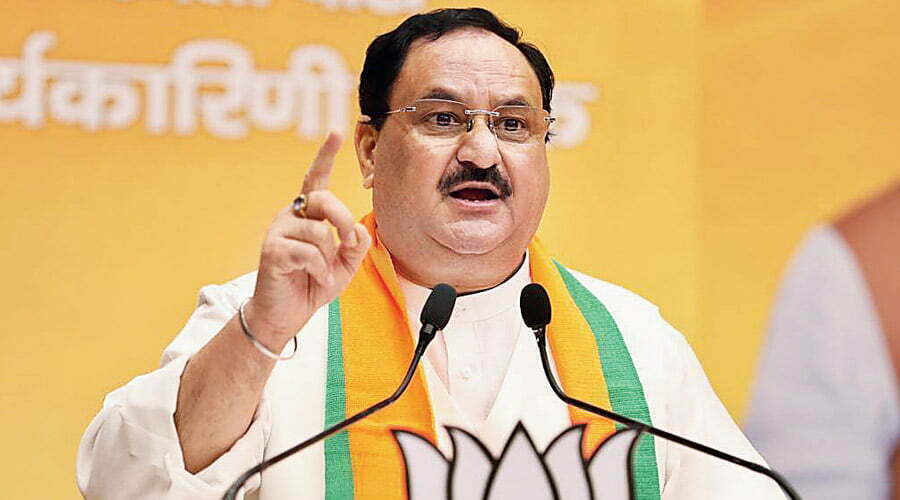‘Rahul Gandhi is a permanent component of the anti-nationalist toolkit,’ said JP Nadda of the Congress leader’s remarks in the UK.

Launching a fresh salvo against Rahul Gandhi for his ‘democracy’ remarks in the UK, BJP president JP Nadda accused the Congress leader of assaulting India’s sovereignty on Friday, and said he had become a “permanent component” of “anti-nationalist toolkit”. In reaction, INC President Mallikarjun Kharge said, “Can Rahul Gandhi ever be anti-national? “Are those who dispute democracy anti-national?”
Throwing aspersions on the Wayanad MP and his party, Nadda, in a video message, said: “It’s sad that the Congress party is participating in anti-national actions. Rahul Gandhi has now become a permanent part of this anti-nationalist toolset after being repeatedly rejected by the public.”
“To seek to meddle in India’s domestic problems by another country is an attack on India’s sovereignty. I want to ask Rahul Gandhi what are his goals behind asking Europe and America to interfere in India’s domestic problems,” he said, adding, “(He) insulted India, its Parliament, people on foreign soil. That equates to arming those who work against the country.”
Striking a contrast with India’s bitter neighbour Pakistan, Nadda asked: “Why do George Soros and Rahul Gandhi speak the same language? Why do Pakistan and Congress speak similarly?”
Gandhi emphasised in his February lecture at Cambridge University’s Judge Management School, “First and foremost, this is our problem. It is an internal issue. It is an Indian problem, and the remedy will come from inside. That will not come from outside. Nonetheless, given the scope of Indian democracy, democracy in India is a worldwide public good. It has far-reaching consequences that extend well beyond our borders. If Indian democracy fails, democracy worldwide suffers a severe, potentially deadly hit, in my opinion. Thus it is also crucial for you.”
Contesting this, the BJP president remarked, “Rahul Gandhi, what is your goal when you want the interference of another country in the internal problems of India?”. He said that the Congress has been “repeatedly rejected by the people” and claimed, “now, no one listens to your party in the country, and the public does not trust you. This is why your party has been practically wiped out.”
Meanwhile, sources told The Deccan Era that the saffron party is considering suspending him from the Lok Sabha if he does not apologise for his remarks in the House.
In the face of rising BJP pressure for an apology, Gandhi stated on Thursday that he made no “anti-India” remarks and would speak in Parliament if permitted.
Responding to the incident on Friday, Kharge remarked, “They (BJP) themselves are anti-national. They were never involved in India’s liberation struggle. And they label others as anti-national. They are doing this to divert attention away from the problems of unemployment and inflation. Is Rahul Gandhi capable of becoming anti-national? Are those who discuss democracy anti-national? JP Nadda’s statement is unacceptable to me. “Why aren’t they allowing Rahul Gandhi to speak in Parliament?”



